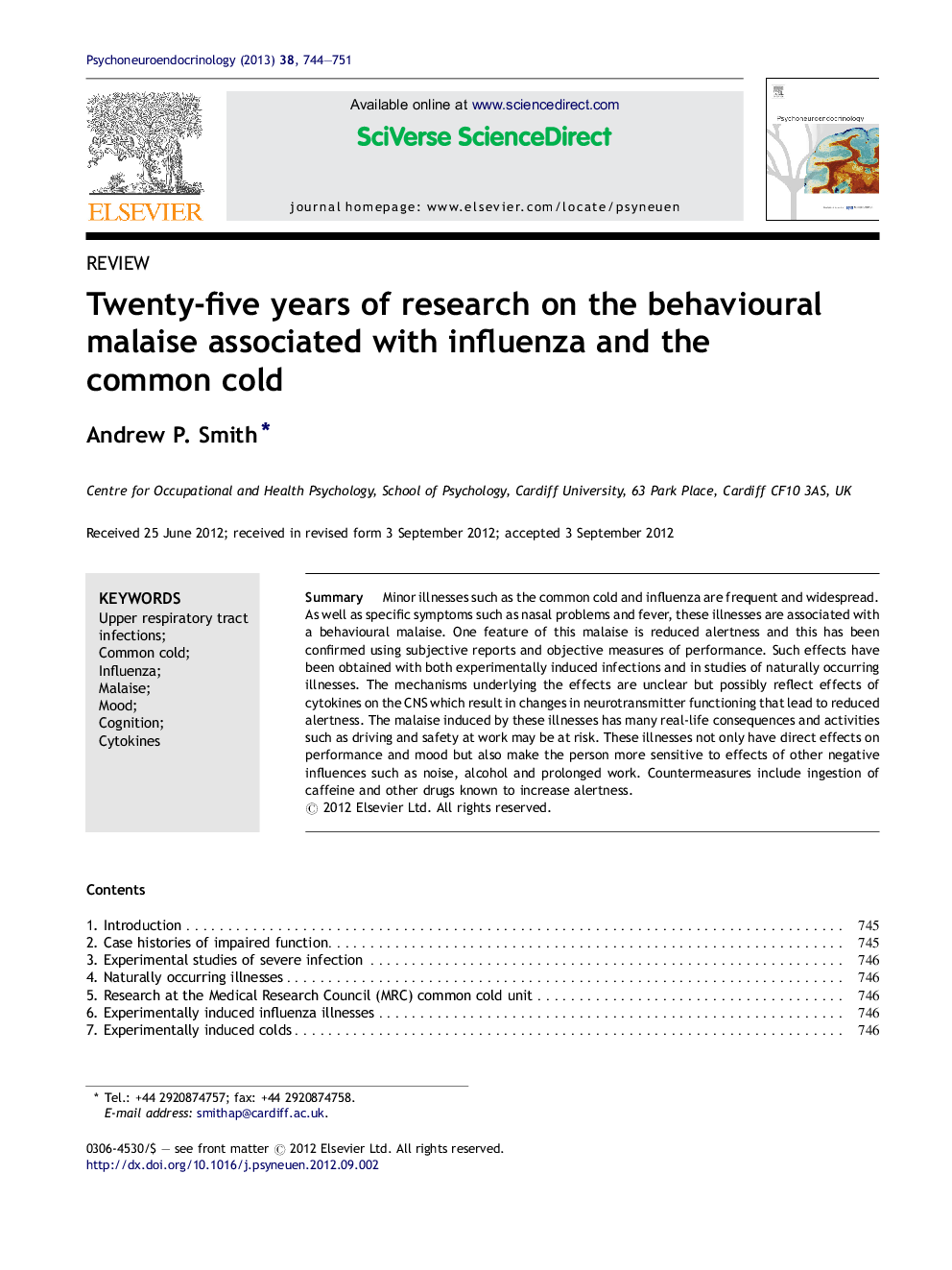| Article ID | Journal | Published Year | Pages | File Type |
|---|---|---|---|---|
| 10306229 | Psychoneuroendocrinology | 2013 | 8 Pages |
Abstract
Minor illnesses such as the common cold and influenza are frequent and widespread. As well as specific symptoms such as nasal problems and fever, these illnesses are associated with a behavioural malaise. One feature of this malaise is reduced alertness and this has been confirmed using subjective reports and objective measures of performance. Such effects have been obtained with both experimentally induced infections and in studies of naturally occurring illnesses. The mechanisms underlying the effects are unclear but possibly reflect effects of cytokines on the CNS which result in changes in neurotransmitter functioning that lead to reduced alertness. The malaise induced by these illnesses has many real-life consequences and activities such as driving and safety at work may be at risk. These illnesses not only have direct effects on performance and mood but also make the person more sensitive to effects of other negative influences such as noise, alcohol and prolonged work. Countermeasures include ingestion of caffeine and other drugs known to increase alertness.
Related Topics
Life Sciences
Biochemistry, Genetics and Molecular Biology
Endocrinology
Authors
Andrew P. Smith,
